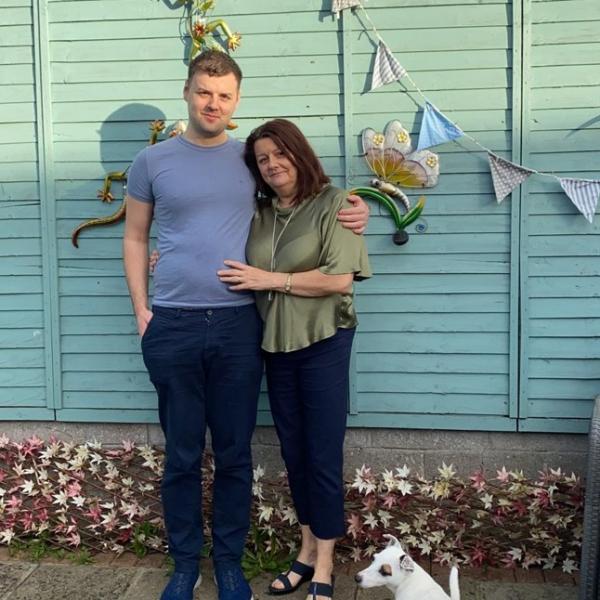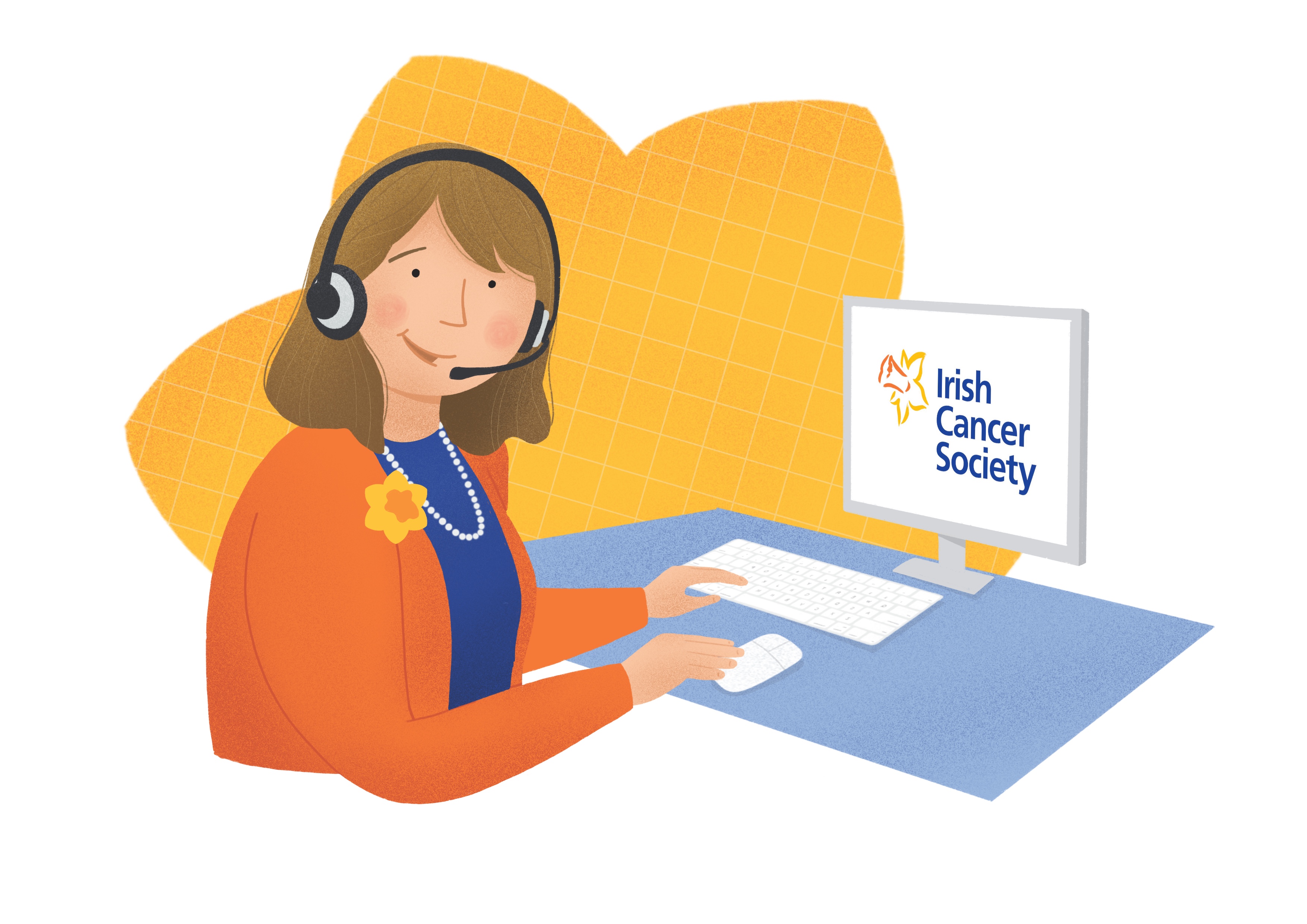
Christopher with his Mum Martina
Christopher Moore from Dublin was diagnosed with FAP at 11 years of age.
Familial adenomatous polyposis (FAP) is a genetic condition where hundreds or thousands of polyps develop in the large bowel (colon). These polyps or adenomas start to grow during teenage years. If left untreated, they can develop into cancer. FAP is an inherited condition and it is very rare.
Both Christopher’s mother and grandfather suffered from the condition.
‘'My dad had a brain haemorrhage at the same time so he was in one hospital and I was in another, and my mum was travelling back and forth. I was in hospital for two weeks following my diagnosis. They had to remove my large intestine and I wasn’t able to eat for five days.''
In 2nd year of college, Christopher had an anal anastomosis and the formation of an ileal-anal pouch (or a J-pouch). '‘I was 17. They removed the lining of my rectum and gave me a stoma. I had the stoma for five months before they reversed it.’'
After surgery, Christopher was left with a fascia, where the scar tissue healed over his skin. ''I had a lot of self-esteem issues due to it. It took a couple of years to get it sorted and I still have a scar.''
While all of this was going on, Christopher was coming to terms with his sexuality. His condition had an effect on his relationships. ''I found it really difficult being gay. The surgery limited the scope of my sexual experiences and roles and so, when guys found out, I learned quickly that I’d never hear from them again. It had a big impact on me. With the scar, intimacy was difficult for me.''
Christopher found that there wasn’t much information available about his condition. ‘It was always very medical jargon. My mental health was affected. It’s a disassociation with your own body. Because all of the information was so medical, I couldn’t process my own feelings. In hindsight, counselling would have been beneficial. Luckily because it’s genetic, I had my mam to explain some of it to me.’'
Christopher’s mum, Martina, was 26 when she was diagnosed with FAP. She had just given birth to Christopher. It was only following Martina’s diagnosis, that they realized her dad, who doctors had been treating for Crohn’s, had the condition too.
‘'My dad was adopted, but he was never legally adopted. We never were able to trace his family. After I gave birth, that’s when the problems started. My iron was very low. I was told to take iron tablets 2 or 3 times a day. I could be feeding Christopher in the middle of night and I’d get an urgency to go to the loo. When I was going to the loo there was blood and mucus. It was interfering with my life,'’ Martina said.
Martina went to the doctor and had a sigmoidoscopy and a colonoscopy. '‘When I came around from the sedation, they sat me up in the bed and a lot of other staff had come in to look at my colonoscopy. The doctors said that the inside of your bowel should be like the inside of your mouth – smooth – but mine was all lumps and bumps. I had surgery and unfortunately two years later, when I was trying to get pregnant again, I found out that the adhesions had crushed my tubes. IVF was my only option.''
Martina says that thankfully things are so much different now, ''I have friends who have had an ileostomy and they don’t have as many problems. I was extremely ill after mine and they had to do a reversal,'’ Martina said.
Christopher and his mum, Martina, go for regular check-ups every two years. ‘'The polyps can still spread even though we’ve had our surgeries. We were told there’s a possibility that they could grow back although it’s unlikely. It’s all a bit of a learning curve. We have to be careful eating fibrous foods in particular, which can be tough as everything from cereals and breads to yogurts are fortified with fibre. I’ve found corn, beans and greens to be the worst for me,'' Christopher said.
'‘I think the biggest takeaway for me was that there could be hundreds or thousands of gay and bisexual men that might experience this and while there is more general support available, there’s no materials on how to navigate this from an LGBTQ+ perspective. I was 13 when I was learning about my own sexuality and I just didn’t know how severely the surgeries and illness would impact my life.’'
Contact the Irish Cancer Society Support Line
Our Support Line is open Monday to Friday 9am to 5pm offering support and advice
for anyone affected by cancer on Freephone 1800 200 700.

